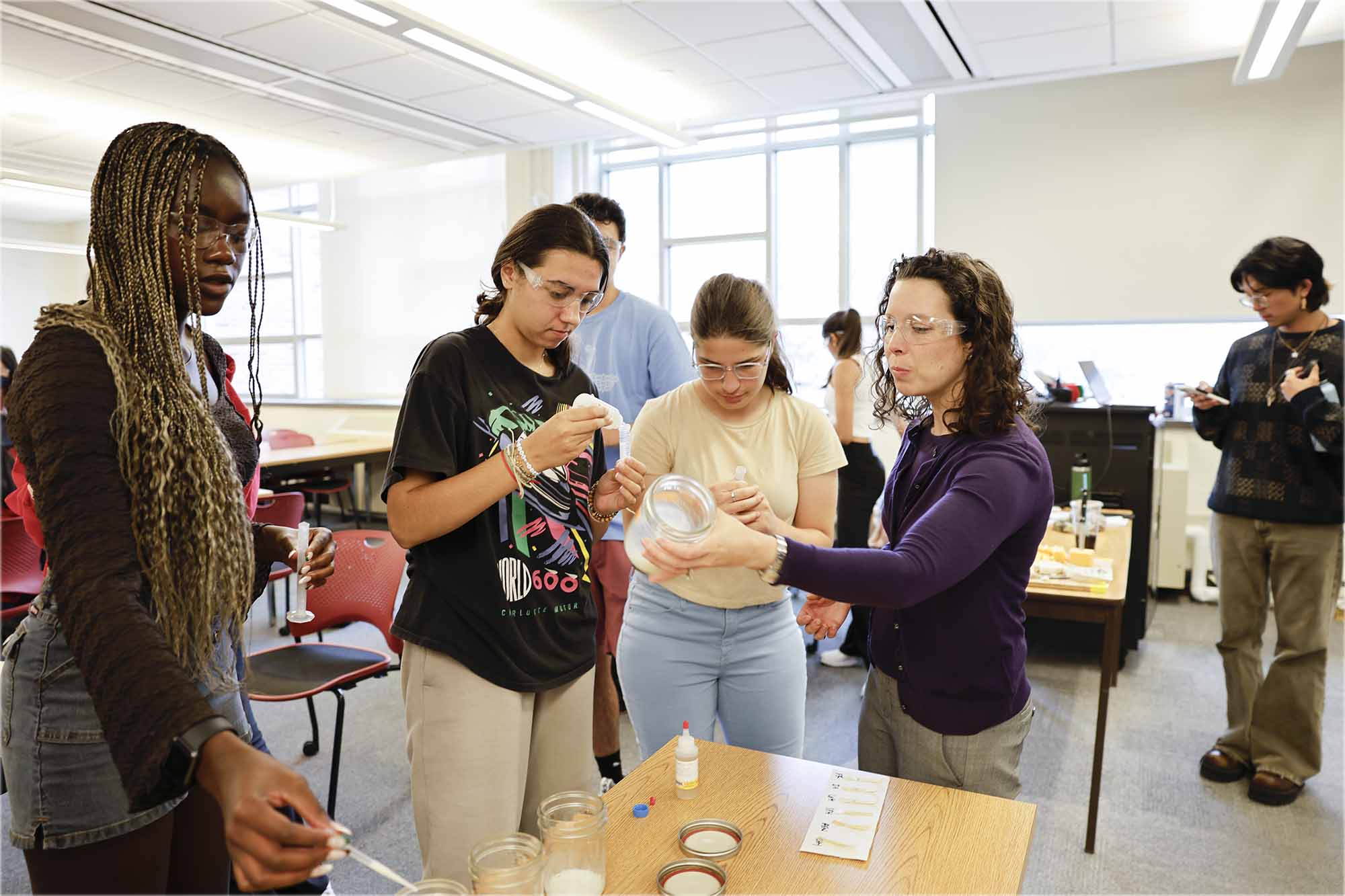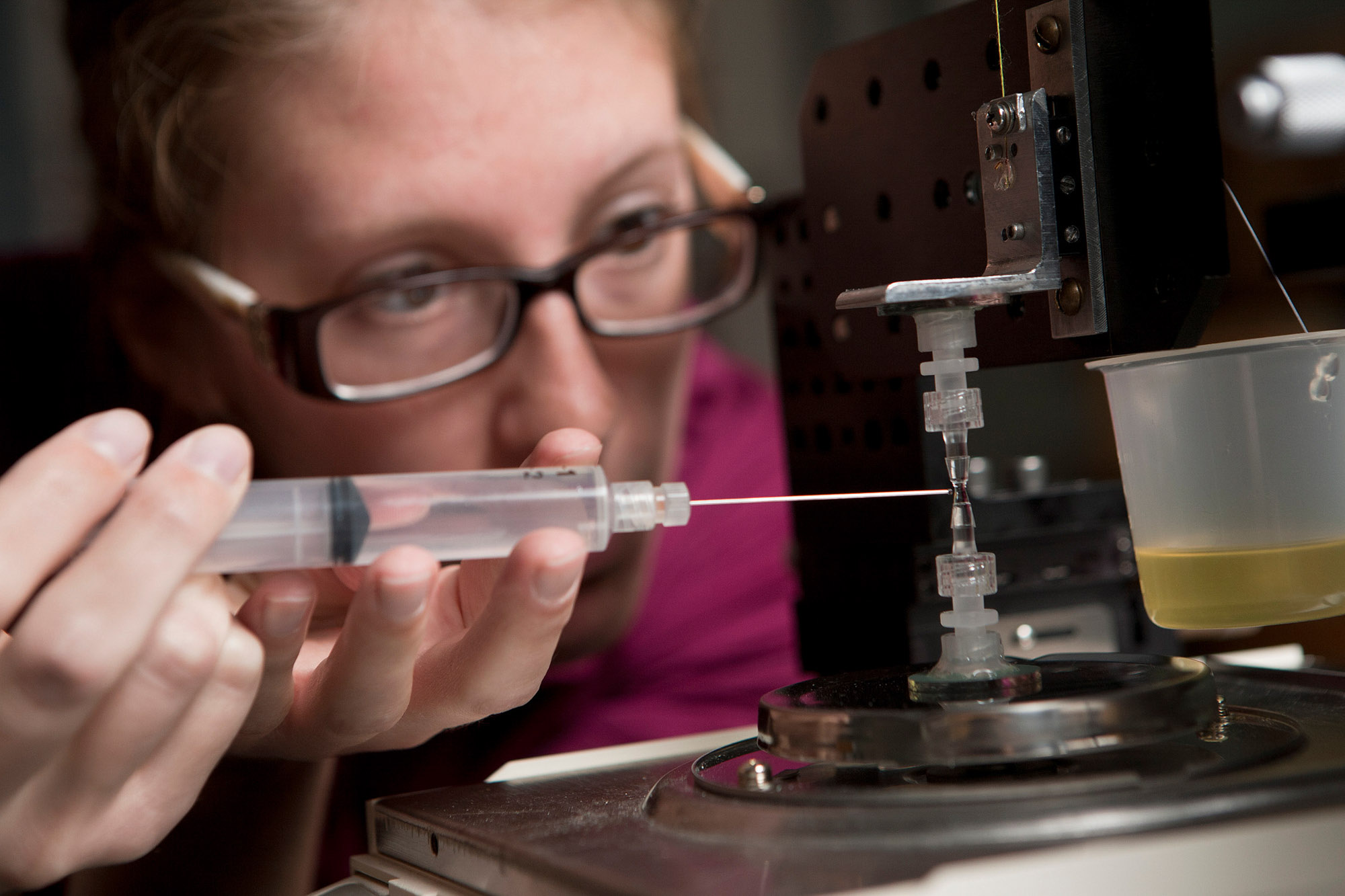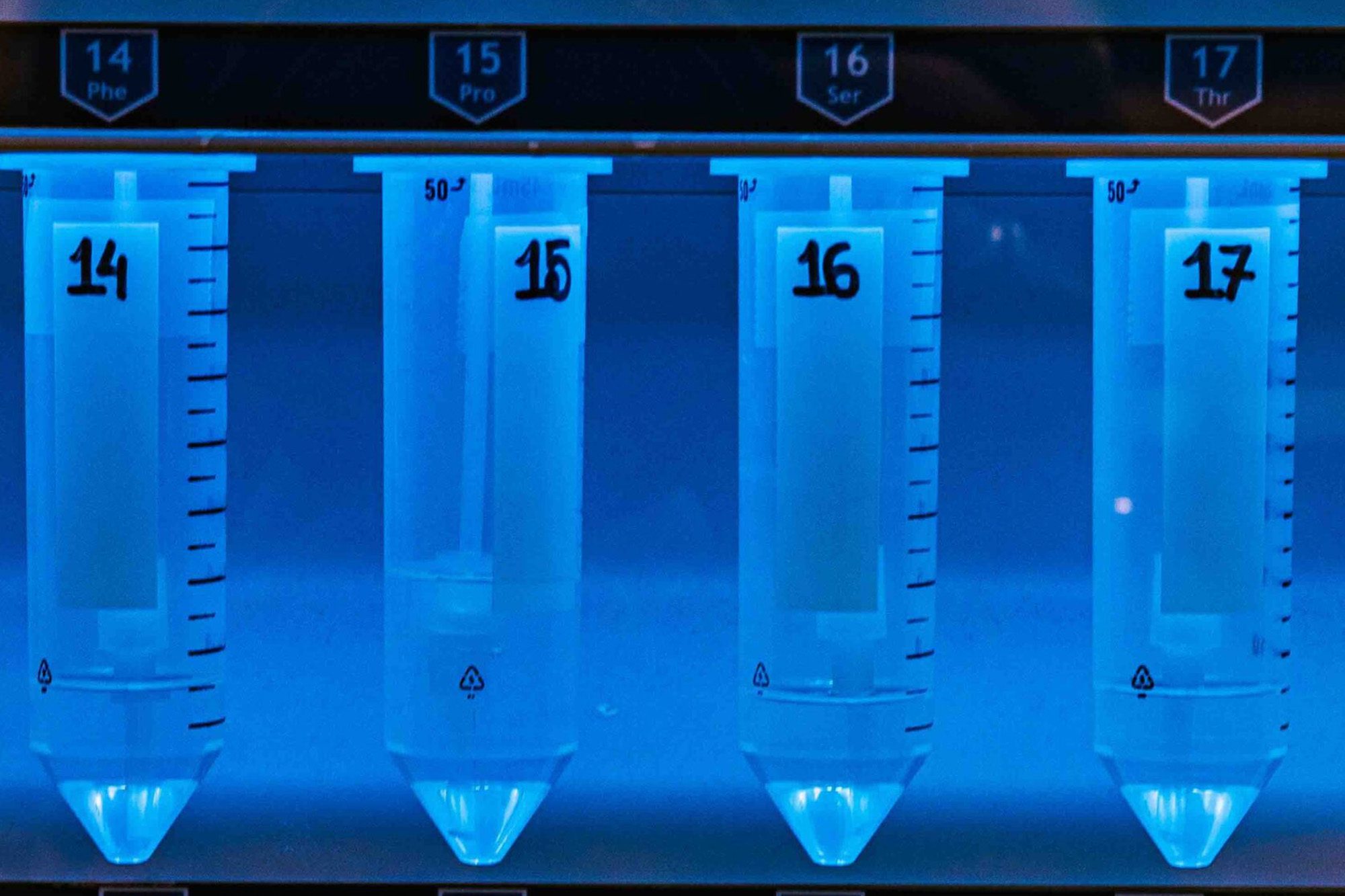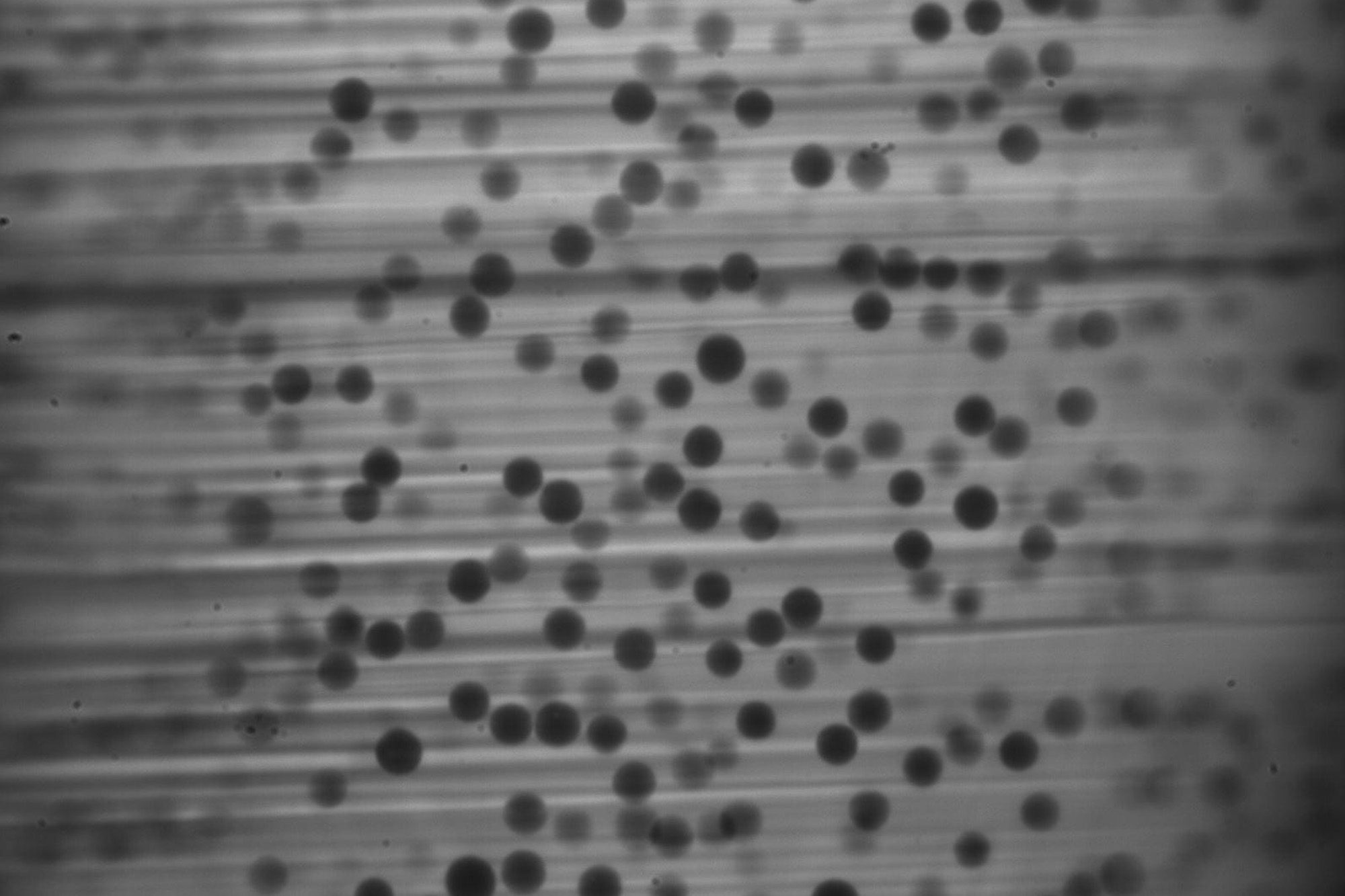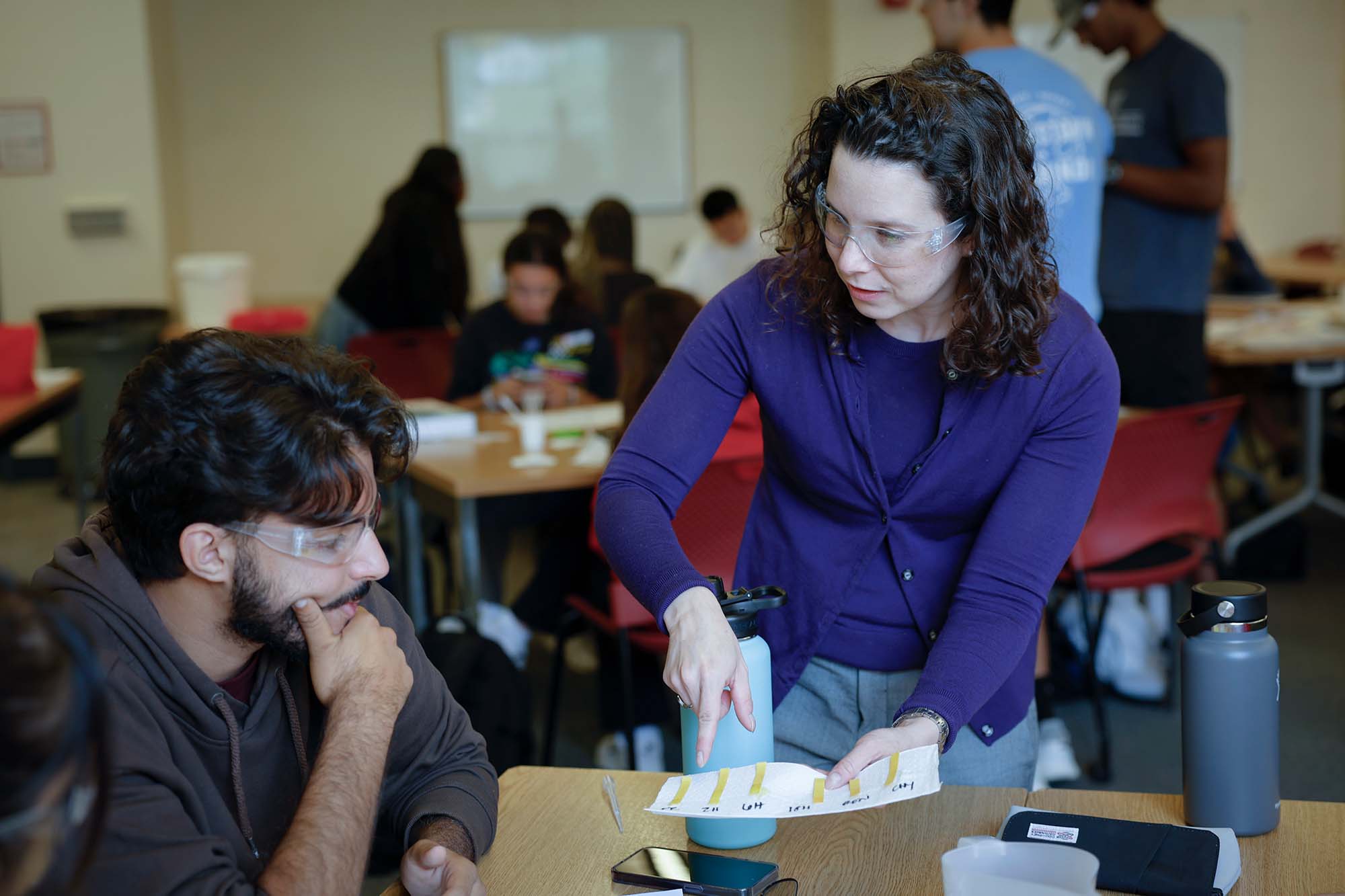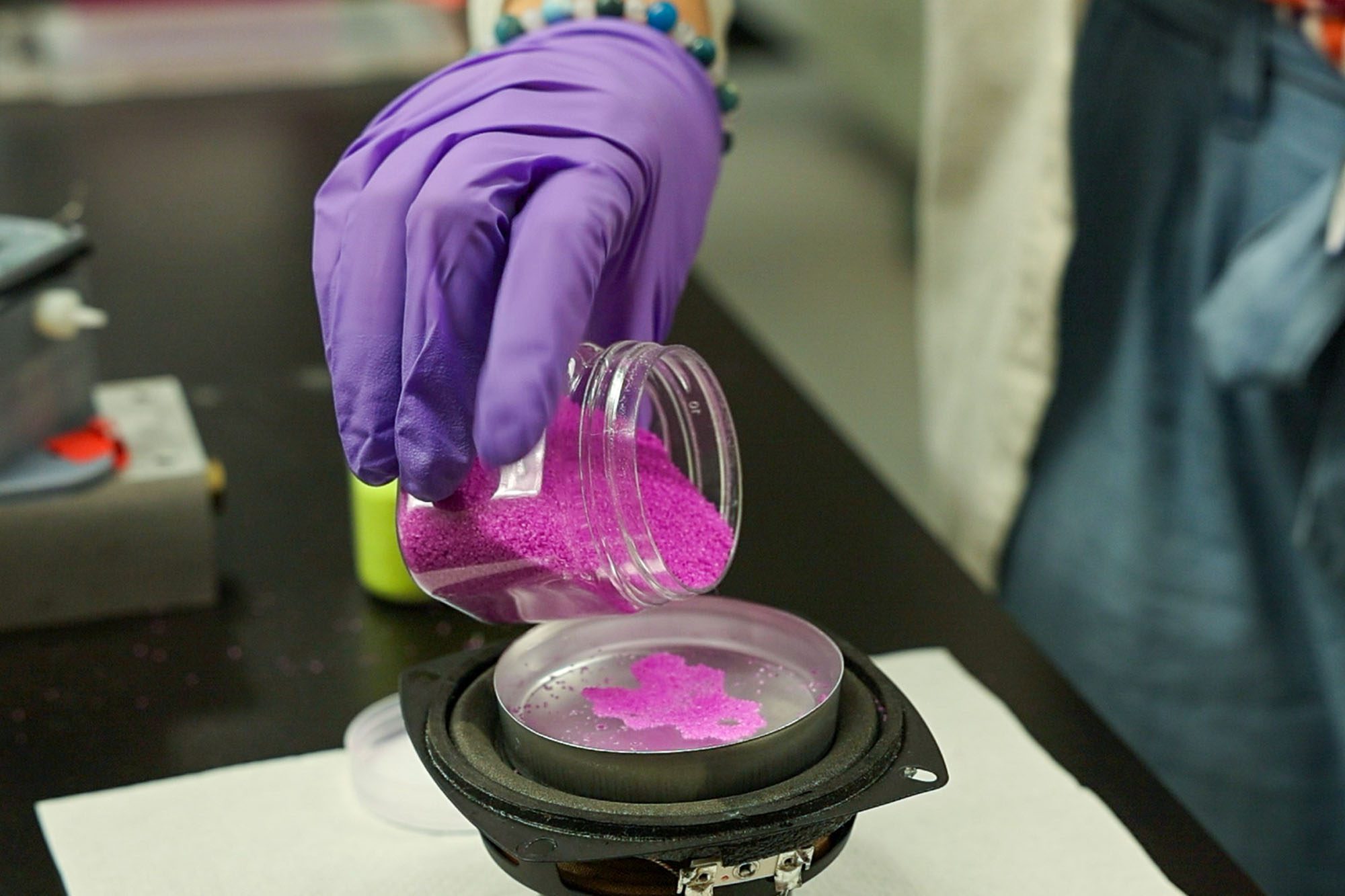Excellence in research, teaching and service.
We formulate solutions to chemical and biomolecular engineering challenges, from processes in food production, pharmaceuticals, and consumer products, to developing energy, electronics and innovative materials.
Our Programs
Transforming raw materials into valuable products through chemical processes. Great for those interested in industries like pharmaceuticals, energy, and manufacturing.
Strategic Research Areas
-
![A line of illuminated liquid-filled tubes for biomolecular testing lined up in a fume hood.]()
Biomolecular Engineering and Biotechnology
Pioneering research in synthetic biology, systems biology, biomedical research and biotechnology, biochemistry and biophysics of biological systems.
-
![Sarah Hormozi research image of particles in suspension soft matter complex fluids.]()
Soft Matter and Complex Fluids
Understanding the structure, behavior, and movement of complex fluids and polymers.
-
![Illustration of research on computational science and engineering.]()
Molecular Simulation and Complex Systems Modeling
Developing and applying computational models for engineering applications.
-
![Allison Godwin works with a student in an Engineering education research EER classroom.]()
Engineering Education
Combining engineering and education research to understand and improve the development of engineers.
-
![Gloved hand pours particles into liquid filled dish in the Tobias Hanrath lab.]()
Engineered Nanomaterials and Interfaces
Applying specialized knowledge to nanofibers, solar power, and materials science.
-
![M.Eng. students work together to decide how to refurbish one of the Solar Panel Reboot team’s broken photovoltaic boards.]()
Energy and Sustainability
Coordinating research and education efforts through sustainability centers to make affordable energy.
News Highlights
-

‘Embodied energy’ powers modular worm, jellyfish robots
In the same way that terrestrial life evolved from ocean swimmers to land walkers, soft robots are progressing, too, thanks to recent Cornell research in battery development and design.
-

AI, quantum drive discovery of peptides for microplastic cleanup
A research team led by Cornell has demonstrated how quantum computing and artificial intelligence can be used to design new peptides capable of capturing microplastics that pose serious risks to ecosystems and human health.
-

Faculty from range of fields earn Engineering’s top research honor
Pioneering advances in quantum computing, sustainable biotechnology, advanced manufacturing and biomedical innovation have earned six faculty members Research Excellence Awards, the highest research honor given annually by Cornell Engineering.
-

With research and data, professor empowers Indigenous communities
For Michael Charles ’16, citizen of the Navajo Nation, his research and advocacy are inseparable – and his lab is generating data to help Indigenous communities advocate for and govern themselves.
Upcoming Events
-

CBE Seminar: Roger Bonnecaze ’85 (Texas)
Bio:Roger T. Bonnecaze ’85 is the dean of the Cockrell School of Engineering at the University of Texas at Austin and affiliated faculty at the Oden Institute. He served as chair of CockrellR…
-
![]()
Soft Matter Seminar: Melody Lim (Cornell Physics)
Bio: Melody Xuan Lim is Biggar/KIC Experimental Fellow Kavli Institute and the Laboratory of Atomic and Solid State Physics at Cornell. Melody’s research is focused on the bottom-up design of ma…
-
![]()
CBE Energy Seminar: Hariprasad Kodamana (IIT Delhi)
Generative AI as a Multi-Scale Enabler in Guiding the Energy Transition The global shift towards sustainable and renewable energy systems presents one of the most critical challenges of our time, nece…
-
![]()
CBE Seminar: Raymond Goldstein Ph.D. ’88 (Cambridge)
Bio:Raymond Goldstein Ph.D. ’88 received undergraduate degrees in physics and chemistry from MIT, and a Ph.D. in theoretical condensed matter physics from Cornell University. Following postdocto…
